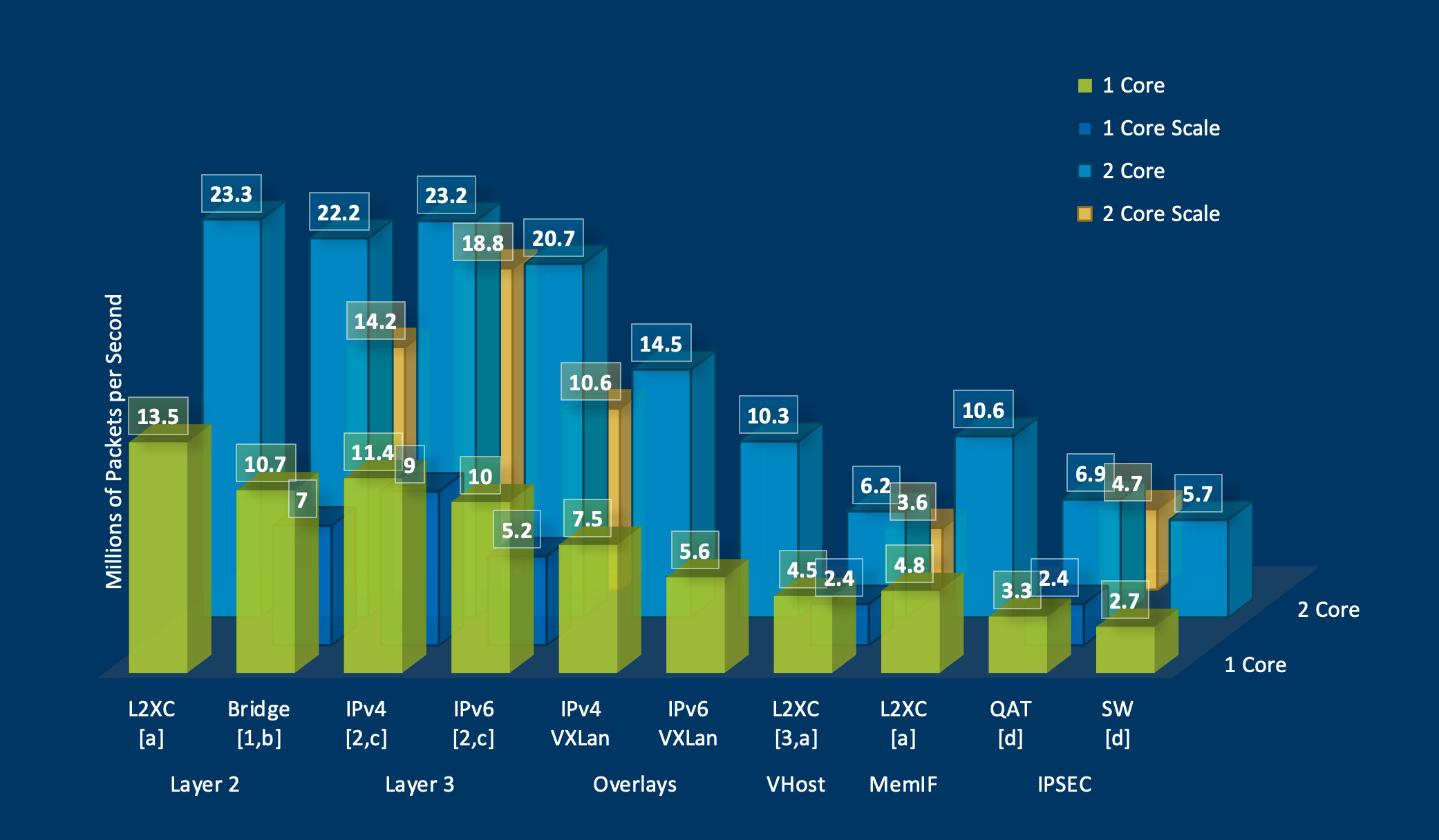CSIT Documentation
The FD.io software is being continuously tested with the tools and framework provided by the CSIT project (Continuous System Integration and Testing).
The project description can be found here CSIT Project.
Reports are published on a release basis at CSIT Report.
Data on FD.io trending performance is found at CSIT Trending.
About performance
FD.io Continuous System Integration Testing (CSIT) is software written for fully automated FD.io VPP code testing, functionality, performance, regression and new functions.
The CSIT Trending is a report that shows the FD.io performance over time. This report insures that over time FD.io will not have perfomance regressions.
A Small Subset of the CSIT Perfomance Results

Tests Cases Summary
Layer 2
L2XC (Cross Connect) - Layer 2 switching between physical ports based on the VLAN tag.
Bridge w/Mac Learning - Layer 2 switching between physical ports based on the learned MAC addresses. Scale: 1 to 1 million mac addresses.
Layer 3
IPv4 Routing - Routing based on an IPv4 destination IP address, with standard IP protocol checks. Scaling from 1 to 2 million routes in the forwarding plane. Scale : 1 to 2 million routes
IPv6 Routing - Routing based on an IPv6 destination IP address, with standard IP protocol checks. Scaling from 1 to 2 million routes in the forwarding plane. Scale : 1 to 2 million routes
Overlays
IPv4 VXLan - IPv4 VXLan tunnel termination, with standard protocol checks.
IPv6 VXLan - IPv6 VXLan tunnel termination, with standard protocol checks.
VHost
(L2XC) Cross Connect - Layer 2 switching between virtual machines using VHost/Virtio based on the VLAN tag. Scale: 2 to 4 vhost interfaces.
Memif (Dockers Containers)
(L2XC) Cross Connect - Layer 2 switching between containers using memif based on the VLAN tag.
IPSEC
QAT - IPSEC tunnel termination, with standard protocol checks accelerated by Intel Quick Assist Cryptography Accelerator. Scale: 1 to 1000 tunnels.
SW - IPSEC tunnel termination, with standard protocol checks.